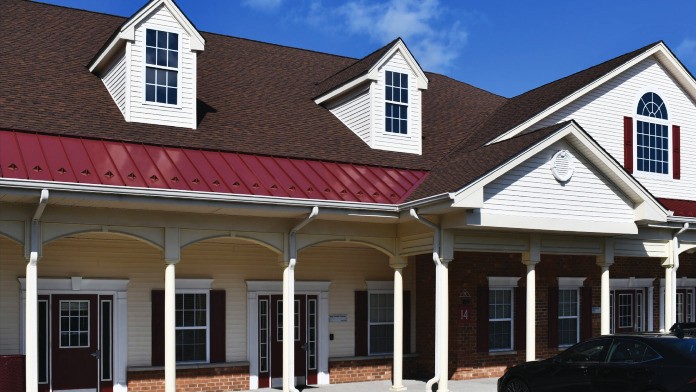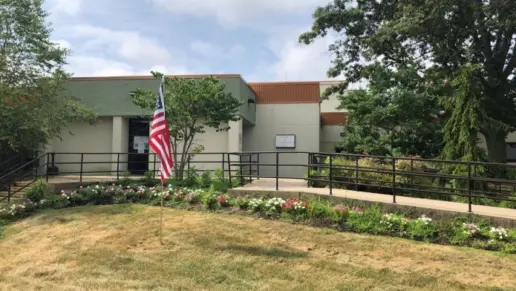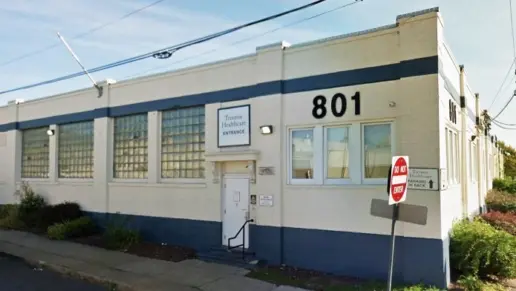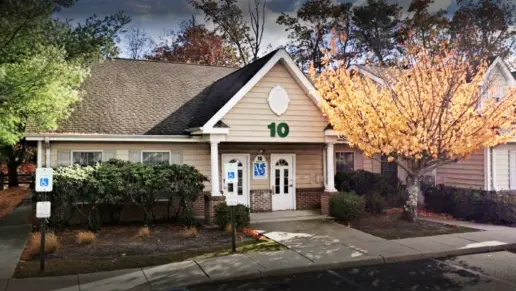About High Focus Centers Branchburg Outpatient Treatment Center
High Focus Centers in Branchburg, New Jersey, is an outpatient mental health clinic that also addresses dual diagnosis disorders. This facility serves adults and adolescent residents of Somerset and Hunterdon counties. Their personalized intensive outpatient program (IOP) for dual diagnosis conditions integrates substance use and mental health therapies.
Their program involves weekly psychiatric sessions with a licensed psychiatrist. These sessions allow the counselor to monitor your mental health and adjust your treatment plan as needed. Medication management services are provided as necessary. You’ll participate in various therapy groups to help you address the emotional issues fueling your behaviors.
During treatment you’ll focus on developing robust coping strategies, preventing relapse and maintaining sobriety. They even offer relapse prevention and psychoeducational groups that focus on building coping strategies and strengthening your recovery skills. You’ll also participate in daily dialectical behavior therapy. This helps you manage emotions and improve interpersonal relationships. You’ll also undergo random drug screening to monitor your sobriety and ensure compliance with treatment.
The adolescent program serves individuals aged 14 to 17 and includes weekly family therapy. This is geared toward rebuilding trust, mending relationships and improving communication with your loved ones. A positive family dynamic strengthens your support network and enhances your recovery efforts.
The remarkable thing about the outpatient program is its flexibility and convenience. They structure sessions to fit your schedule so you can maintain your work or other daily routine while receiving treatment. They even offer a hybrid treatment model that has both in person and online telehealth services. This means you can receive therapy from the safety and comfort of your home using telehealth video conferencing technology. This can be super convenient.
Rehab Score
Gallery





Location
Other Forms of Payment
Private insurance refers to any kind of healthcare coverage that isn't from the state or federal government. This includes individual and family plans offered by an employer or purchased from the Insurance Marketplace. Every plan will have different requirements and out of pocket costs so be sure to get the full details before you start treatment.
Self-pay involves paying for treatment out of your own pocket. You can use savings or credit, get a personal loan, or receive help from family and friends to fund your treatment. If you don't have insurance or your insurance plan doesn't cover a specific program, self-pay can help ensure you still get the care you need.
Addiction Treatments
Levels of Care
Treatments
The goal of treatment for alcoholism is abstinence. Those with poor social support, poor motivation, or psychiatric disorders tend to relapse within a few years of treatment. For these people, success is measured by longer periods of abstinence, reduced use of alcohol, better health, and improved social functioning. Recovery and Maintenance are usually based on 12 step programs and AA meetings.
Drug rehab in New Jersey is the process of addressing the complex issues involved with addiction. Challenges are identified and addressed through individual and group counseling. Participants learn how to manage these issues without the use of substances.
Many of those suffering from addiction also suffer from mental or emotional illnesses like schizophrenia, bipolar disorder, depression, or anxiety disorders. Rehab and other substance abuse facilities treating those with a dual diagnosis or co-occurring disorder administer psychiatric treatment to address the person's mental health issue in addition to drug and alcohol rehabilitation.
A combined mental health and substance abuse rehab has the staff and resources available to handle individuals with both mental health and substance abuse issues. It can be challenging to determine where a specific symptom stems from (a mental health issue or an issue related to substance abuse), so mental health and substance abuse professionals are helpful in detangling symptoms and keeping treatment on track.
Opioid rehabs specialize in supporting those recovering from opioid addiction. They treat those suffering from addiction to illegal opioids like heroin, as well as prescription drugs like oxycodone. These centers typically combine both physical as well as mental and emotional support to help stop addiction. Physical support often includes medical detox and subsequent medical support (including medication), and mental support includes in-depth therapy to address the underlying causes of addiction.
Programs

Clinical Services
Cognitive Behavioral Therapy (CBT) is a therapy modality that focuses on the relationship between one's thoughts, feelings, and behaviors. It is used to establish and allow for healthy responses to thoughts and feelings (instead of unhealthy responses, like using drugs or alcohol). CBT has been proven effective for recovering addicts of all kinds, and is used to strengthen a patient's own self-awareness and ability to self-regulate. CBT allows individuals to monitor their own emotional state, become more adept at communicating with others, and manage stress without needing to engage in substance abuse.
Group therapy is any therapeutic work that happens in a group (not one-on-one). There are a number of different group therapy modalities, including support groups, experiential therapy, psycho-education, and more. Group therapy involves treatment as well as processing interaction between group members.
In individual therapy, a patient meets one-on-one with a trained psychologist or counselor. Therapy is a pivotal part of effective substance abuse treatment, as it often covers root causes of addiction, including challenges faced by the patient in their social, family, and work/school life.
Motivational interviewing helps clients find their motivation to change. It can be an effective method to work with clients who are angry or hostile or feel insecure about their ability to make changes in their lives. It is often used during addiction treatment or to manage physical health conditions.
The Trauma Intensive Outpatient Program (IOP) treats adults who have experienced a recent traumatic event, as well as those whose past history of trauma contributes to ongoing psychiatric symptoms or PTSD (Posttraumatic Stress Disorder). Structured as an IOP, the Trauma Program at High Focus Centers provides a level of care that is higher than traditional outpatient services. The Trauma Program is meant to complement longer term individual or group therapy for trauma or PTSD, either as an initial treatment experience, or as an alternative to traditional outpatient therapy during a period of heightened symptoms.
Building life skills allows you to demolish negative patterns of behavior and build new, healthy patterns. By building new thought processes, coping strategies, and behaviors, you establish a solid foundation for recovery.
Creativity is inherently healing, and can help those in recovery express thoughts or feelings they might not otherwise be able to. Creative arts therapy can include music, poetry/writing, painting, sculpting, dance, theater, sandplay, and more. Unlike traditional art, the final product matters far less than the experience of creation and expression itself.
Experiential therapy is a form of therapy in which clients are encouraged to surface and work through subconscious issues by engaging in real-time experiences. Experiential therapy departs from traditional talk therapy by involving the body, and having clients engage in activities, movements, and physical and emotional expression. This can involve role-play or using props (which can include other people). Experiential therapy can help people process trauma, memories, and emotion quickly, deeply, and in a lasting fashion, leading to substantial and impactful healing.
Amenities
-
Residential Setting
-
Private Rooms
Accreditations

The Commission on Accreditation of Rehabilitation Facilities (CARF) is a non-profit organization that specifically accredits rehab organizations. Founded in 1966, CARF's, mission is to help service providers like rehab facilities maintain high standards of care.
CARF Accreditation: Yes

State Licenses are permits issued by government agencies that allow rehab organizations to conduct business legally within a certain geographical area. Typically, the kind of program a rehab facility offers, along with its physical location, determines which licenses are required to operate legally.
State License: New Jersey

The Joint Commission, formerly known as JCAHO, is a nonprofit organization that accredits rehab organizations and programs. Founded in 1951, the Joint Commision's mission is to improve the quality of patient care and demonstrating the quality of patient care.
Joint Commission Accreditation: Yes
Contact Information
3322 US-22
Suite 14
Branchburg, NJ 08876


